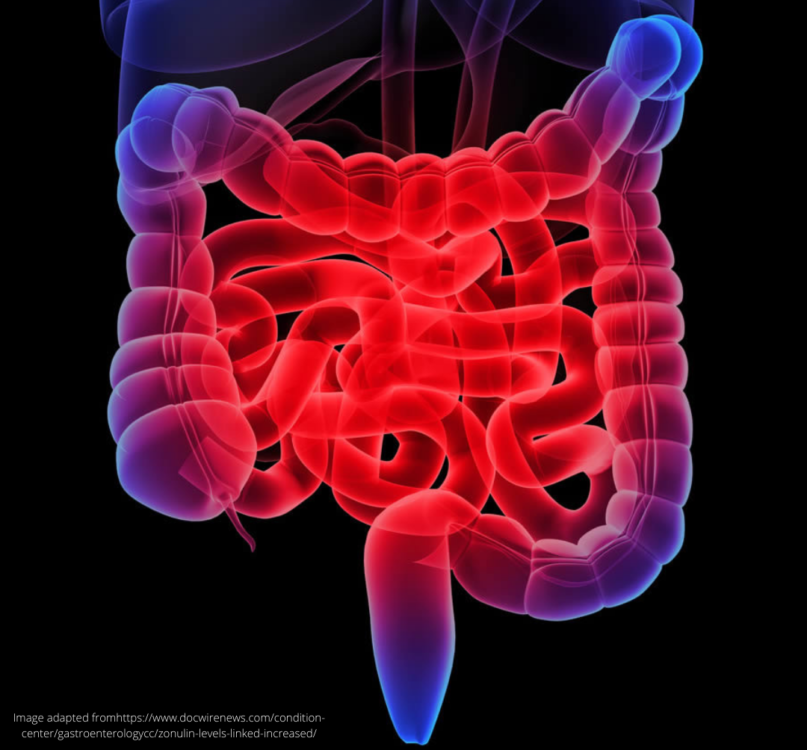Nutrition and Digestive Health

Nutrition and Digestive Health by Alex Cisneros, Registered Dietitian Student, University of Houston
This new year brings many opportunities for new beginnings regarding your diet and lifestyle. One opportunity that impacts many aspects of our well-being is our digestive health. The digestive system breaks down our food in a long journey including the mouth, stomach, small and large intestines. The journey is responsible for absorbing nutrients such as carbohydrates, protein, and fat, and using those nutrients for energy. Furthermore, water is also absorbed, and remaining waste is disposed through bowel movements. Our diet has a direct impact on the well-being of our digestive health, and this blog post is going to expand on the correlation between certain nutrition regimens to support a healthy functioning digestive system.
- Consume fiber rich foods regularly!
Fiber is the part of plant foods that do not absorb or digest in the body. Instead of absorbing or digesting, fiber passes through our digestive system almost completely whole. Fiber can be found in the following plant foods: oats, beans, barley, vegetables, fruits, whole wheat flour and wheat bran.
Fiber has a variety of benefits to the digestive system. Firstly, it regulates bowel movements by increasing and softening your stool, creating an easier passing. Secondly, fiber helps solidify stool by absorbing water and increasing the size. Some ways you can include fiber in your diet are the following:
- Implement fiber rich snacks throughout your day such as fresh fruits, raw veggies and dips, and handful of nuts/seeds.
- Try switching to whole grain options for breads, pastas, and flour. Additionally, whole grains like brown rice, quinoa, wild rice, and barley are fiber rich sources to use for whole grains.
- Incorporate legumes such as beans, lentils, and peas as your choice of protein. These legumes have high fiber content and are a plant-based source of protein.
- Staying hydrated
Hydration is key to keeping an optimal digestive system. It is ideal to stay hydrated by drinking water consistently throughout the day, however another way to stay hydrated is to consume hydrating foods. Certain fruits and vegetables can help you maintain a healthy hydration status, which will assist in the regulation of bowl movements and digestive health. Fruits and vegetables that consistent of hydrating properties include the following:
- Cucumbers
- Tomatoes
- Citrus fruits
- Pineapple
- Watermelon
- Grapefruit
- Pears
- Understanding your gut microbiome and outside factors that impact it.
The gut microbiome can be defined as the bacteria, fungi, viruses, and other microscopic living things that live inside an individual’s intestines. Our gut microbiome impacts many aspects of our health, particularly our digestive health. In the gut, there are certain bacteria that can be classified as “good and bad.” When the gut microbiome is balanced, there is the right ratio of “good” and “bad” bacteria in the intestines. The right balance of bacteria in our gut has a positive effect on our health such as regulating digestion, balancing hormones, supporting heart health, and supporting mental health. There are variety of simple ways to improve or keep up a balanced gut microbiome:
- Eat a diverse and balanced diet. The more diverse your diet is, the more diverse and balanced your gut microbiome can be. Eating diversely can look different for everyone, try experimenting with different culture foods or include a variety of fruits and vegetables you haven’t consumed much into your meals.
- Consuming probiotics. Probiotics are live bacteria known for their beneficial qualities with increasing healthy bacteria in the gut. Probiotics can be found in fermented food such as sauerkraut, natto (Japanese style of soybeans), Kimchi, Miso and kombucha. In addition, probiotics can be consumed as supplements in select situations if eating fermented foods doesn’t seem to be sustainable for your lifestyle.
- Limit artificial sweeteners and Preservatives. Common artificial sweeteners such as aspartame, sucralose, saccharin, and sorbitol have been linked to negative effects in our gut microbiome. These common sweeteners are known to increase the harmful bacteria in the gut, therefore causing an imbalance in the gut microbiome. Preservatives such as Sodium Benzoate, Potassium Sorbate and others also negatively impact the gut bacteria.
Enjoy this new year and begin or continue to take care of your digestive health by implementing any or all of the nutrition regimens stated above! Please don’t replace this blog post for medical advice. Always speak to your health care provider regarding diet and any other medical concern.
References
Holscher, D. H. (2017). Dietary fiber and prebiotics and the gastrointestinal microbiota. Gut Microbes, 8, 172–184. https://doi.org/10.1080/19490976.2017.1290756
Gorkiewicz,G., & Moschen, A. (2018). Gut microbiome: a new player in gastrointestinal disease. Virchows Archive, 472, 159-172. https://doi.org/10.1007/s00428-017-2277-x
Issa, I., & Moucari, R. (2014). Probiotics for antibiotic-associated diarrhea: Do we have a verdict? World Journal of Gastroenterology, 20, 17788–17795. https://doi.org/10.3748/wjg.v20.i47.17788
Schmidt, S. B. T., Raes, J.,& Bork, P. (2018). The human gut microbiome: From association to modulation. Cell, 172, 1198-1215. https://doi.org/10.1016/j.cell.2018.02.044/
Suez, J., Korem,T., Zeevi, D., Zilberman-Schapira, G., Thaiss,C.A., Maza, O., Israeli, D., Zmora, N., Gilad, S., Weinberger, A., Kuperman, Y.,Harmelin, A., Kolodkin-Gal,I., Shapiro, H., Halpern, Z., Segal, E., & Elinav, E. Artificial sweeteners induce glucose intolerance by altering the gut microbiota. Nature, 514, 181-186. https://doi.org/10.1038/nature13793

Leave a reply